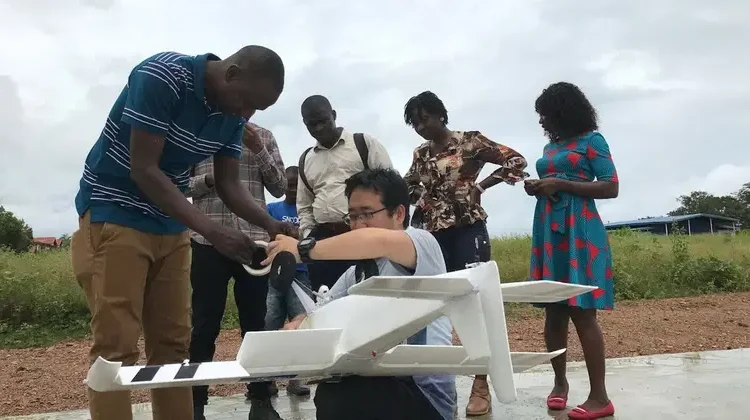… Our technology cuts costs, targets malaria larvae – Marina Ishikawa
As malaria-carrying mosquitoes change their behaviour and weaken traditional prevention tools, Japanese health-tech startup SORA Technology is set to launch drone-guided malaria control in Nigeria, following years of work across West and East Africa.
In a virtual interview, SORA’s Chief Operations Officer, Marina Ishikawa, explained how the company’s drone and AI-based system has cut costs and improved the targeting of malaria-transmitting mosquito larvae in several African countries.
She said SORA is already in discussions with the National Malaria Elimination Programme (NMEP) in Nigeria and has hired a local representative to coordinate an upcoming pilot programme.
Burden of Malaria
Malaria remains one of Nigeria’s most severe public-health challenges. WHO regional data shows Nigeria recorded an estimated 68 million malaria cases and about 194,000 malaria-related deaths in 2021. The country accounts for 27% of all global malaria cases.
In 2023, WHO reported that 30.9% of global malaria deaths occurred in Nigeria, with children under five most affected. Across Africa, the continent carries more than 90% of the world’s malaria burden.
How SORA’s Technology Works
SORA’s innovation combines drone imaging with artificial intelligence to map standing water—possible mosquito breeding sites—and identify which ones likely contain Anopheles larvae, the species responsible for malaria transmission.
Field operations revealed that only 30% of water bodies actually contain the dangerous larvae. Ishikawa said this insight allows for more precise larvicide application, reducing chemical use and manpower.
The drones also make it easier to spray in remote or inaccessible areas where human teams struggle to reach.
Success Stories Across Africa
SORA has already deployed its system in Ghana, Sierra Leone, Benin, Kenya, and most recently Mozambique, in partnership with the World Health Organisation. Plans are underway to expand to Zanzibar and mainland Tanzania next year, before moving into more than ten additional countries.
One of SORA’s major strengths, Ishikawa noted, is its model of training local teams to operate drones and manage the surveillance system independently.
Why This Approach Matters Now
Traditional malaria tools like insecticide-treated bed nets remain vital, but mosquito behaviour is changing. Ishikawa explained that malaria-carrying mosquitoes are increasingly biting outdoors and during the day, weakening bed nets’ protective effect.
“As mosquitoes evolve, our response must evolve, too,” she said. “Preventing them at the larval stage is increasingly vital.”
By targeting the breeding process, SORA’s method aims to stop infections before they begin.
Barriers and Pushback
Despite its potential, SORA faces challenges in expanding the system. Drone technology is still unfamiliar in many regions, raising concerns around safety, privacy, and cost. Approvals and funding often require lengthy negotiations.
“Getting governments on board takes time. People want to see proof, not just promises,” Ishikawa said.
However, the company believes growing partnerships and successful deployments across Africa are helping build trust.
Nigeria as a Strategic Priority
For SORA, Nigeria represents a crucial market due to its massive malaria burden. The company will work with Nigerian health authorities to choose the starting point—whether high-transmission rural areas or densely populated urban centres.
“Our objective is clear. We want to reduce malaria dramatically within the first few years, and then push toward zero,” Ishikawa stated.
Backing and Global Support
SORA recently raised JPY 670 million (about USD 4.8 million) in seed funding to expand into Nigeria and other regions. Investors include Nissay Capital and DRONE FUND, among others.
The company is also part of the G7-endorsed Triple I Initiative, which promotes innovation and investment in global health. The funding will strengthen SORA’s AI forecasting system, scale drone operations, and deepen collaboration with local health teams.
Ishikawa emphasized that drones and AI can help build resilient, life-saving public-health systems where traditional methods struggle.

